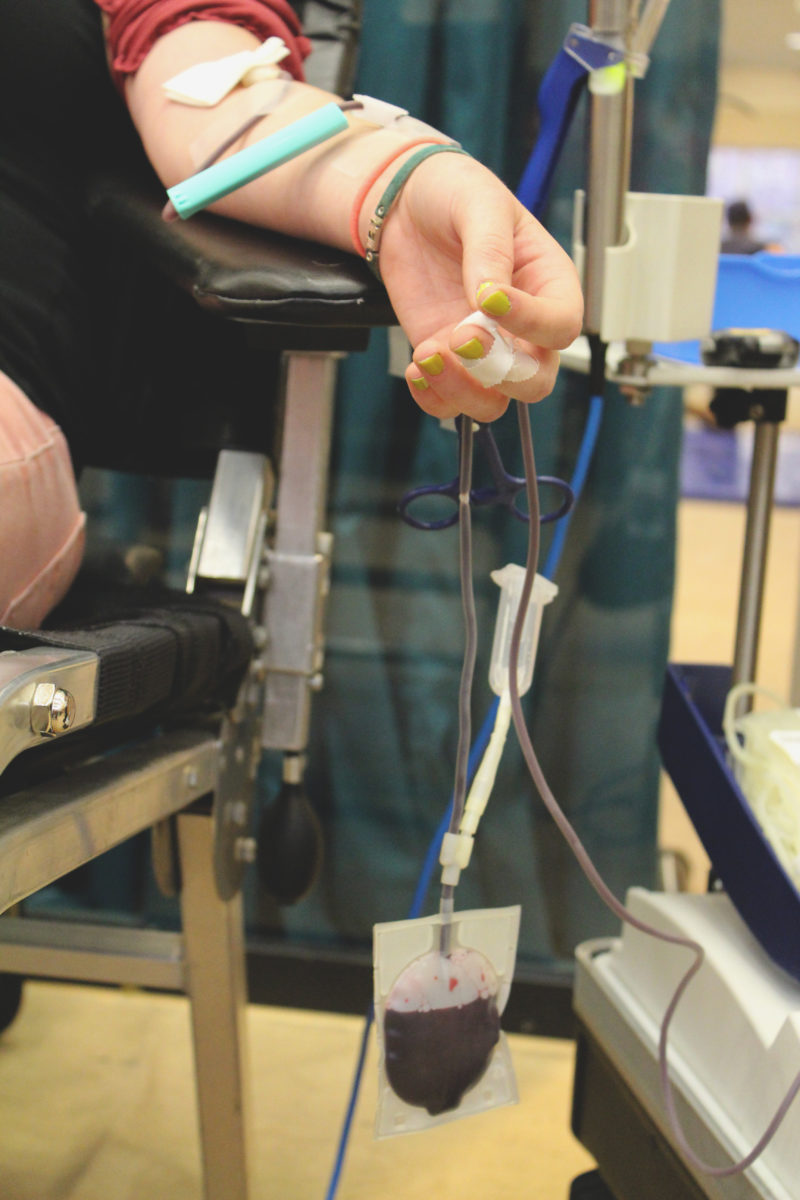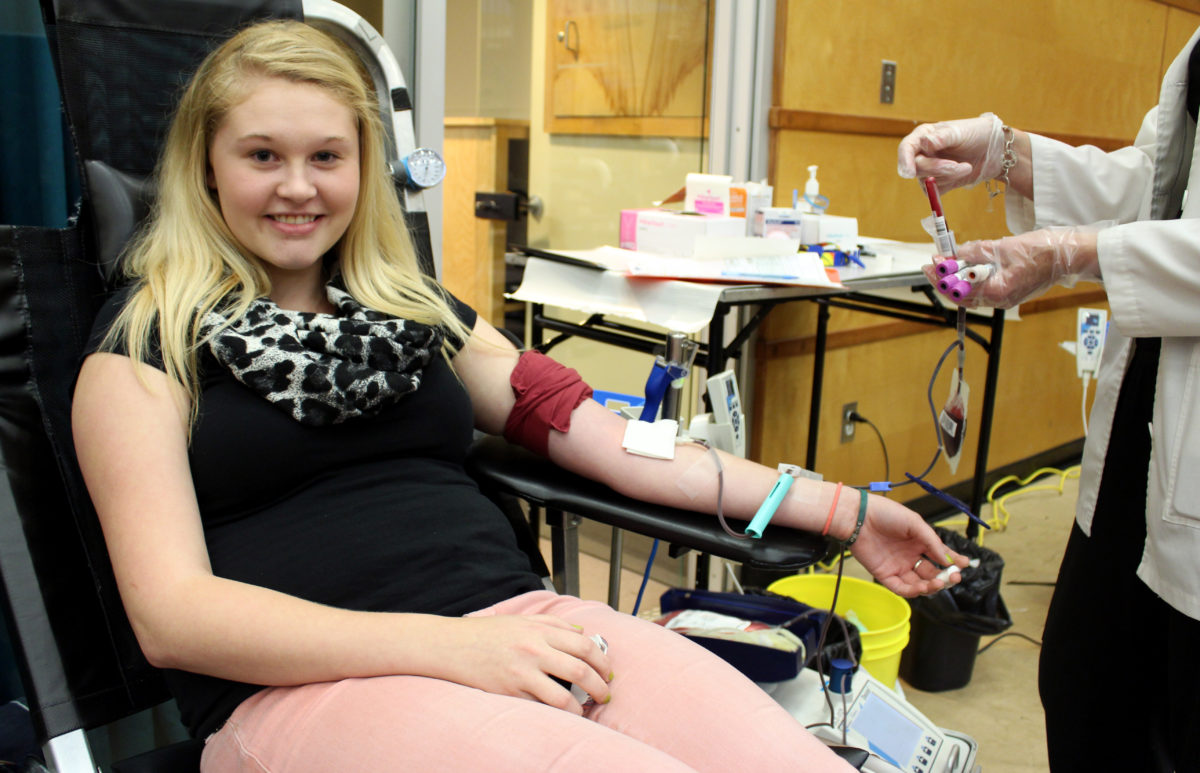
Mitchell Peardon once donated blood, but now he can’t.
The second-year St. Thomas University student started donating blood in high school. He donated three times, but had to stop once he became sexually active.
Canadian Blood Services had a policy that men who have had sex with men are not allowed to donate since it was discovered in the ‘80s that HIV, the virus that causes AIDS, was being transmitted through transfusions. It was not until 2013 that they lifted this ban in favour of a five-year deferral period.
Peardon considered lying.
“But then a friend made me realize, you shouldn’t have to lie about who you are,” he said.
He was even considering abstinence, but said it is not worth it. He can’t put his happiness on hold.
Even though Peardon can’t donate himself, he encourages others to do so.
Last week, Canadian Blood Services held a blood donor clinic on St. Thomas University’s campus in the J.B. O’Keefe Fitness Centre. Peardon, a member of the STU rugby team, said he encouraged the rest of the team to donate.
Donated blood is tested for HIV and other diseases before it is given to a patient.
“This is to ensure the safety of the blood and safety for the patient,” said Jacqueline Alain, manager at Canadian Blood Services.
Alain would not directly respond to questions of why Canadian Blood Services did not take blood from gay men. She said they need the safest blood possible.
Recently, there has been talk about decreasing the deferral period to one-year because of low donation rates.
“They are changing their views, which is good, but not enough,” said Peardon.
Peardon said basing the policy on health concerns is not valid.
“Just like straight people, we use protection too.”
Lately, Canadian Blood Services can’t really afford to turn anyone down, said Alain.
“We are facing the lowest inventory in eight years, so it’s going to take more than one or two clinics to make up for the shortage.”
The clinic held on STU campus on Wednesday had a turnout of 67 units collected. Canadian Blood Services holds a clinic at STU twice a year.
Alain said because of health reasons, they sometimes do have to turn away people if they don’t meet the criteria.
To donate blood, you have to be in good health and between the ages of 17 and 71. A person cannot donate if they have had a tattoo or piercing in the last six months or if they have been to a malaria-risk area in the last year.
In 2012, the student association of Carleton University in Ottawa banned their blood clinic on campus because of its policy on donations from gay men.
While the issue was raised by a student two years ago, STU spokesman Jeffrey Carleton said the school will not ban blood clinics on campus.
“We recognize the concern of people who would disagree with the blood donor guidelines used by the blood service, but at the same time blood donor clinics are central to public health in our province. Clinics at St. Thomas have been very successful at helping them help patients.”
Carleton also pointed out that Canadian Blood Services have made changes and is heading in the right direction.
Peardon said he thinks a lot more blood would be donated if this policy was changed.
“I think in the next 10 to 15 years it will no longer be a problem because they will see that they will need everyone to donate.”

